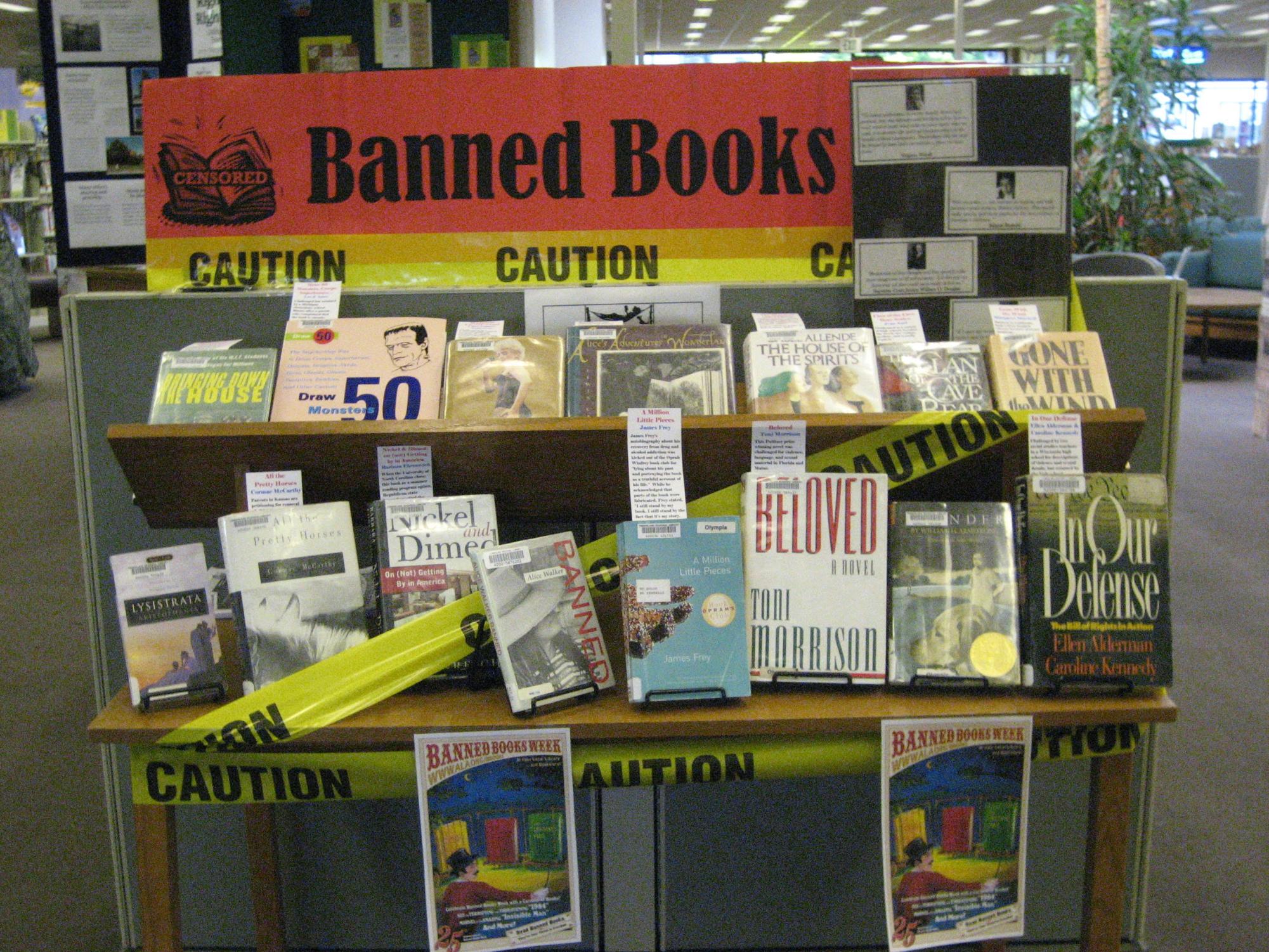TRUTH MATTERS… Donate to support excellence in student journalism
Book bans are not a new topic. The first book ban in the United states can be dated all the way back to 1637. A book known as “New English Canaan” by Thomas Morton was banned as it was believed to be a harsh critique of the Puritan traditions.
In recent years, book banning has become increasingly prevalent, particularly in academia. In the 2021-2022 school year alone, over one thousand books were banned from our classrooms, including books such as “The Poet X” by Elizabeth Acevedo and “Leah on the Offbeat” by Becky Albertalli.
But this year, banning books has been taken to a whole new level.
Different districts throughout the United States have taken it upon themselves to deem multiple books as unsuitable for children to read. As of November 2023, over 10,000 books have been recalled and banned from states all across the nation, including “Flamer” by Mike Curato and “Tricks” by Ellen Hopkins.
There’s a pattern to which books are being attacked — titles that are “inappropriate” often include sexual themes or diverse leads. According to PEN America, 57% of banned literature included sex-related themes or depictions.
Many people, believing that book bans are largely insignificant to themselves or their children in school, might dismiss these developments.
However, censoring books should not be taken lightly. When you take away books, you dampen the authors’ voices, and the public’s rights and opportunities to learn.
People may call these worries overdramatic, but the evidence unfortunately suggests that the passionate cries against censorship are warranted. Each year, there is news coverage surrounding the latest books that are taken off shelves. Los Angeles Times, CBS News and The Guardian are among the most prominent news outlets shining light on the issue.
Clearly, many stories and the messages the banned books hold are prevented from being told or heard because of all these regulations. School boards can cite content that is “obscene,” “defamatory” or “incites violence” in books and pull them off of shelves during review processes. By nature, such decisions are subjective and are often initiated by complaining parents or teachers.
One prime example is “Nineteen Minutes,” a novel that follows the events leading up to a school shooting. For many of author Jodi Picoult’s audience, the book resonated deeply and made a difference in their lives.
Yet the book was banned for containing “pornography.” In reality, the “pornography” was a rape scene that certain readers of “Nineteen Minutes” felt they could relate to or sympathize with.
Banning books merely for their depiction of tragic events that happen in real life does nothing to help victims overcome their experiences. Such widespread banning of literature containing content with sexual assault can cause victims to feel lonely and ashamed of what they went through. It also reduces awareness of such events to other readers who might develop a more nuanced worldview through exposures in literature.
It is important to take this into account because books like “Nineteen Minutes” have had a positive impact on people. It has prevented tragedies and should be valued and recognized for being helpful. Instead, the author’s good intentions are frequently dismissed as books are stripped from shelves around the country.
Another banned book is “Looking for Alaska” by John Green. “Looking for Alaska” was also banned for “pornography,” simply because it contained a sex scene.
Many readers, as in the case of “Nineteen Minutes,” have shared how this book helped them deal with grief and the loss of a loved one. This book is not just about sex and should not be diminished to that aspect alone. Such narrow-minded attacks on any title containing sexual content belittles the author and suppresses their ability to share a message.
The school system has a big problem with banning books just because they don’t fit their “happy-go-lucky, kindergarten-book” standards. Teenagers are old enough to understand the dark themes and topics some books express.
Taking away these resources from teens who may be struggling with their identities or navigating difficult feelings can only end in harm.
So to school districts around the country, please stop being so biased towards what goes in and out of school libraries.
And to parents, please stop being so overprotective.
It’s about time we let authors’ messages be heard for what they are and accept that students are capable of learning from mature content, even if adults struggle to recognize that truth.




